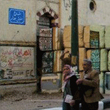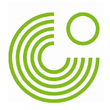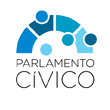 |
||||||||||||||||||||||||||||||||||||||||||||||||||||||||||||||||||||||||||||||||||||||||||||||||||||||||||||||||||||||||||||||||||||||||||||||||||||||||||||||||||||||||||||||||||||||||||||||||||||||||||||||||||||||||||||||||||||
| NECE NEWS | ||||||
 |
NECE goes Social Media
Follow NECE at twitter and linkedIn. |
|||||
 |
NECE Conference 2013: Online registration now open! Register until 7 November!
14-16 November 2013, The Hague (The Netherlands) |
|||||
 |
Meeting of the Focus Group "Participatory Budgeting"
The first NECE Focus Group Workshop “Participatory Budgeting” successfully took place on 11-12 October 2013 at the Federal Agency for Civic Education/bpb in Berlin, Germany. Within a small circle of stakeholders and experts from science and practice, strategies for an efficiently future networking and a concept to present the group at this year’s NECE Conference on 14-16 November 2013 in The Hage (the Netherlands) were developed. The results of the workshop will be published at our website, soon. If you are interested in a long-term participation please register at |
|||||
 |
Meeting of the Focus Group "Exchange between Europe and North Africa"
8-10 December 2013, Alexandria (Egypt) |
|||||
| EURO-MED COOPERATIONS | ||||||
 |
Call for Participants from Europe: Civic Education Conference Egypt (CECE)
8 - 10 December 2013, Alexandria (Egypt) |
|||||
| GOOD PRACTICE: IDEAS & EXAMPLES | ||||||
 |
“Civic Parliament” Pamplona, Navarre (Spain)
In a recent article, Spanish NECE correspondent Concepción Naval looked at the “Civic Parliament” joint initiative sponsored by the University of Navarre and the autonomous region’s parliament, which is seeking ways to promote democratic values and civic participation. The aim of the initiative is to help define the underlying educational needs in terms of social communication and co-operation (for social action) that are required to motivate and contribute to the maintenance of such processes.
Read the full article at the NECE website.
|
|||||
| POLITICS & POLICIES & CITIZENSHIP EDUCATION | ||||||
|
News on the Memorandum to the Council of Europe
Since the transmission of the Memorandum to the Council of Europe regarding the Spanish Government´s project to remove Democratic Citizenship and Human Rights Education in school curriculum by the Fundación Cives in February 2013, they achieved the following things: |
||||||
|
Commission Report on EU Citizenship: Acknowledging the Central Role of Education
Europe-wide
The European Commission has published a policy review document on 'Co-creating European Union Citizenship'. The document draws on the key research findings of fifteen EU-funded social sciences and humanities research projects that have contributed to the understanding of the genesis and evolution of EU citizenship. While citizenship status promises an important set of rights and opportunities for all EU citizens, challenges remain, and the report discusses the numerous remaining obstacles to reaching EU citizenship rights. |
||||||
|
Research Project “Enacting European Citizenship” (United Kingdom)
Lead by the Open University in the UK, the FP7-funded research project “Enacting European Citizenship” has produced some very original results based on using innovative methodology involving activists and civil society directly in conducting research – and not limiting activities to 'traditional' forms of citizen participation, or actors who already consider themselves to be 'European' citizens. The project challenges dominant conceptions and ideas surrounding the meaning of European Citizenship, and highlights forms of active citizenship that are at risk of being forgotten by European institutions. |
||||||
|
Publication of Final National Curriculum Strengthens Citizenship in England
England’s Department for Education has published a final draft of its National Curriculum for secondary schools in the country. The curriculum contains a number of specific changes that will have an impact on areas such as human rights and references to democracy, public institutions, voluntary groups and the ways that citizens` work together to improve communities. A key element is the inclusion of requirements to teach citizenship skills alongside knowledge and understanding – in particular the skills of critical thinking about political issues, research, debate and reasoned argument – as well as active participation in different forms of responsible action. |
||||||
|
Report: Citizenship Education in England
Ofsted has just released a report on the state of citizenship education in England, which evaluates the quality of citizenship education in primary and secondary schools. It is based on evidence from inspections of citizenship between September 2009 and July 2012 in 126 maintained schools in England, including four special schools. Part A focuses on the strengths and weaknesses identified during the survey. Part B provides specific examples of good practice in teaching and learning in citizenship. |
||||||
|
Online Debate on the Future of Europe
European citizens, organisations and policymakers can take part in a web-based discussion about Europe’s Single Market going on until 23 October 2013. Participants are encouraged to submit their own ideas and views on the topics of employment, social rights, banks and e-commerce, as well as to comment and vote on ideas submitted by others and take part in live online chats with experts and people who work for the EU. The results of the debate, which was initiated by the European Commission, will be summarised in a final report that is to be used as a reference source in shaping future EU legislation. |
||||||
|
ACT.REACT.IMPACT. European Parliament Hits the Campaign Trail
The EP has launched a four-phase information campaign leading up to the 2014 parliamentary elections. The first-phase baseline programme ACT.REACT.IMPACT, which seeks to explain the European Parliament’s new powers and their implications for people living in the EU, was launched in early September. Beginning in October and lasting until February 2014, Phase Two will highlight five key topics – the economy, jobs, quality of life, money and the EU in the world – at a series of interactive events in European cities. Starting in February 2014, Phase Three includes the election campaign proper, and will focus on the 22-25 May election dates. After the elections, a final phase will focus on the newly-elected European Parliament, its selection of the next European Commission President and the inauguration of the new Commission. . |
||||||
|
Laws for Volunteers in Romania
The Federation of Organizations Supporting the Development of Volunteerism in Romania (VOLUM) has made prolonged efforts to improve legal provisions involving volunteer activities in the country. The 50 NGOs that are part of the federation have now proposed amendments to legislation regulating the area (Law Nr. 195/2001). Implementing a legislative project like this is an important step towards also implementing the “Public Agenda of Volunteering in Romania 2012-2020” that was set down in 2011. |
||||||
| CALLS | ||||||
|
Call for Entries and Applications: Actors of Urban Change - Urban Development through Cultural Activities and Cross-Sector Collaboration in Europe
The programme “Actors of Urban Change” is aimed at achieving sustainable and participatory urban development through cultural activities. This is carried out by strengthening competencies for cross-sector collaboration among actors from the cultural scene, current political administrations and the private sector. Through local projects, coaching and Europe-wide exchange, our actors of urban change put those skills into practice. The programme’s pilot stage will span from the summer of 2013 until the summer of 2015. Deadline for applications is 27 October 2013 |
||||||
|
Call for Papers: (JSSE 2014-2) Young Europeans in an Era of Crises – Citizenship Education in a New Perspective
This issue will focus on young Europeans’ understanding of civics and citizenship and their perceptions, attitudes and behaviours with respect to specific European-related civic and political issues, institutions and policies. It will examine youth interest in public and political commitment, perceptions of threats to civil society, and democratic values. Its aim is to shed light on youth participation in activities to help people in communities foster the promotion of human rights, protection of the environment, support for equal rights and opportunities for ethnic/racial groups and immigrants. Deadline for submissions is 20 December 2013. |
||||||
| EVENTS | ||||||
|
Eastern Partnership Youth Forum
22-25 October 2013, Kaunas (Lithuania) |
||||||
|
Connecting Baltic Citizenship Seminar
28-30 October 2013, Stockholm (Sweden) |
||||||
|
EU Research & Innovation - Proposal Development 2014-2020
24-25 October 2013, Brussels (Belgium) |
||||||
|
Current publications on issues involving citizenship education in Europe can be found at the NECE website. |
||||||